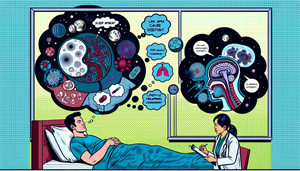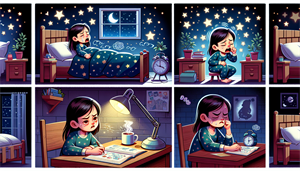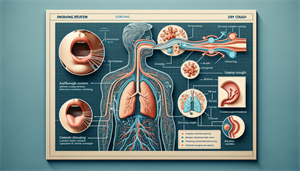
Can Sleep Apnea Cause Dizziness?
Struggling with dizziness can be disconcerting, especially when it seems linked to sleep disturbances like sleep apnea. It’s common to question: can sleep apnea cause dizziness? The answer, simply put, is that sleep apnea, through its interruption of normal breathing, can indeed lead to sensations of dizziness due to fluctuating oxygen levels affecting the brain. This article will delve into the mechanisms by which sleep apnea contributes to these unsettling episodes of lightheadedness without offering excessive detail or making it feel like a sales pitch.
Key Takeaways
Sleep apnea can cause dizziness due to hypoxemia (low oxygen levels in the blood), inner ear disruptions, and neurological impacts affecting balance and spatial orientation. Continuous Positive Airway Pressure (CPAP) machines, while effective for treating sleep apnea, can cause dizziness in some patients due to pressure changes in the middle ear. Proper adjustments to the machine and mask can help mitigate this side effect. Comprehensive treatment of dizziness in sleep apnea patients may involve a multifaceted approach including CPAP therapy, alternative treatments (like positional therapies and oral appliances), comprehensive care plans, and addressing comorbid conditions.
Unraveling the Mystery: How Sleep Apnea Influences Dizziness
Sleep apnea, including central sleep apnea, is a form of sleep disordered breathing that manifests as recurring disruptions in breathing during sleep, resulting in diminished oxygen supply to the brain. Often, people with sleep apnea experience dizziness first thing in the morning. This disorientation, characterized by a sensation of lightheadedness, can complicate the transition from a supine to an upright position for patients. Various physiological mechanisms underpin the association between sleep apnea and dizziness. The primary culprits include hypoxemia, disturbances in the inner ear, and an impact on neurological functions. Comprehending these elements facilitates the development of effective solutions for treating sleep apnea and the related dizziness.
Hypoxemia and Disorientation
Hypoxemia, a state of low oxygen levels in the blood, is a common occurrence in untreated sleep apnea. The symptoms associated with hypoxemia can range from: severe fatigue, daytime drowsiness, cognitive impairment, and visual disturbances. One of the most serious symptoms, however, is a feeling of disorientation, which can manifest as dizziness. The precise process through which hypoxemia triggers disorientation and dizziness is the insufficient oxygen provision to the brain, which hampers its regular operation. This condition is particularly evident in individuals with sleep apnea, where chronic intermittent hypoxia and molecular-level alterations are common. Treating sleep apnea can help alleviate these symptoms and improve patients’ quality of life.
Inner Ear Disruptions
Inner ear disruption also contributes to dizziness in patients with sleep apnea. The inner ear plays a crucial role in maintaining balance, and any disruptions to its function can lead to dizziness and vertigo. Sleep apnea can impact the inner ear through hypoxia-induced oxidative stress, inflammation, and alterations in blood flow. The underlying mechanism here involves the fluctuations in air pressure that occur during sleep apnea events. These pressure changes can affect the middle ear and disrupt the inner ear’s function, potentially leading to symptoms of dizziness. Patients may experience dizziness and vertigo as a result of impaired blood flow to the inner ear due to these disruptions.
Neurological Impact
Sleep apnea’s neurological impact further adds to the incidence of dizziness. During an apnea event, changes in cerebral perfusion, cerebral desaturation, and cerebral hemodynamics take place. This alteration in neuronal function may cause disorientation and dizziness.


